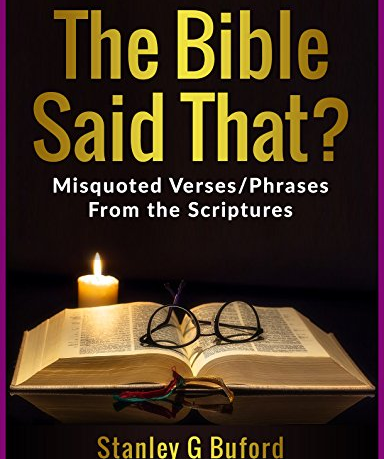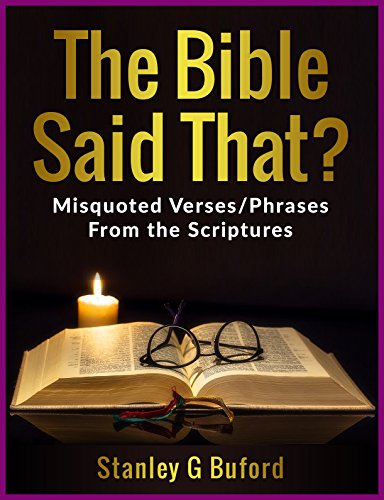You are here: Home / BM / Republicans and Devout Christians: Are You Sure Mike Pence – The Bible Said That?
Like
Like
Love
Haha
Wow
Sad
Angry
11
(ThyBlackMan.com) Mike Pence is among a growing list of politicians that have attempted, unsuccessfully, to make the Bible appropriate their political agenda…shame!
Although it is undeniably challenging to bounce back once you hear a mob demanding your hanging, Mike Pence’s GOP presidential debate is a testament to his ability to preach and present an impressive sermon. He used that sermon to leverage various tried-and-tested strategies with the objective of presenting his perspective as actual facts.
Less than an hour after the debate began, the issue of abortion was brought up. The question that arose is whether a federal ban will be supported by the Republicans in the aftermath of the overturning of Roe v. Wade. Nikki Haley and Ron DeSantis responded in intriguing ways when the fact was presented that the 60 votes required is not being met by Republicans, although it is necessary to support a ban in the Senate. When Pence was presented with the same question, solemnity consumed the room. He undertook a religious tone while reminding DeSantis that he was not new to this entire topic.
Pence explained that he opened the Book once he gave his life to Jesus Christ. As he said that, the capitalization of the words became apparent. He explained that his definitive opposition to abortion emerged from a specific text. He read the text out aloud: “Before I formed you in the womb, I knew you, and see, I set before you life and death, blessings and curses. Now choose life.” It may be mentioned that it is best to capitalize the last two words as well, so you do not confuse it with the commonly seen bumper sticker.
Pence concluded that he was immediately certain that this had to be his cause. The anecdote was certainly impressive. It was phrased in a manner that emphasized the origin of his pro-life beliefs to all of the staunch Christians, while also skillfully preventing arguments that may operate against his stance on a political level.
However, what’s interesting to note is that the former vice president had to leap quite a bit in order to arrive at this perspective. In fact, the aforementioned para may be considered an expert rendition of evangelical biblical interpretation, without sidestepping all of the careless ideals and inaccurate claims to authority common to this practice.
What is crucial to understand in the first place is that two Biblical verses are presented by Pence here and they emerge from two distinct books, each with a multitude of pages and a gap of many centuries between their publication. As such, the outcome was a Frankenstein quote. The cut-and-paste of two different chunks of text emerging from Jeremiah 1:5 to Deuteronomy 30:19 was glossed over with a casual “and see.” In the first passage, God is essentially informing Jeremiah of his prophetic role for the Jerusalem populace, while disclosing God’s plans for him. On the other hand, the second part was taken from a speech by Moses, before the entrance of Israeli people into Canaan – the promised land. Thus, given this context, adhering to God’s commandments is associated with choosing life, while idolatry and death are equated.
Pence has previously used Jeremiah 1:5 in another setting to substantiate his stance on abortion. In fact, it was employed by him in his 2016 vice presidential debate where he faced Tim Kaine. However, in this context, his patchwork quote was meant to be presented as one singular verse. That is certainly erroneous, but there’s more.
He also seemed to have neglected to provide the contextual basis of each of the two verses. Hermeneutics labels this as proof texting, which is a technique wherein an individual begins with a specific notion, which they use to work backward with the objective of finding a relevant biblical passage substantiating such a claim. By ignoring key context, the process of identifying a biblical quote relevant to your belief becomes quite simple. However, introducing historical and literary context may decrease the persuasiveness of these proof texts. This becomes evident when we look at Pence’s stance and his use of Jeremiah and Deuteronomy. Analyzing these texts demonstrates that they are completely unrelated to the discourse of abortion. However, they are capable of contributing to the anti-choice discourse, which is evident from Pence’s use of the Jeremiah passage. However, with a little bit of analysis, it becomes apparent that they do not actually add to a political agenda in a straightforward manner.
There is something else that is problematic about Pence’s biblical interpretation strategy. Since Pence does not cite his sources and merely attributes them to “The Book,” he conveniently ignores the fact that they are from two separate books of the Bible, thereby leveraging the perceived authority of the entire Scripture to his political advantage.
There is more to this story. After Pence quoted these verses and implied that they contributed to his conversion and led to his born-again experience, there are two verbs that he used. After saying “I read,” he eloquently doubles down with the phrase “I knew.” These phrases are used to convey that there was no scope for any interpretation in this context. He merely read and knew what it meant. However, reading works in an entirely different manner. In fact, when it comes to biblical interpretation, reading is no longer distinct from interpretation. The onus is on us to read and comprehend the message. The process may seem quite challenging based on the text. In the case of the Bible, the difficulty level skyrockets because it was written thousands of years ago and across multiple languages, wherein the context on a cultural level was also vastly different.
Moreover, many bible scholars have argued that several people wrote the text, whose social, religious, and political agendas varied significantly. The process of interpretation is preceded by sifting through various translations. Evangelical Christians interpret the Bible in a manner that often erases this entire process. Instead, they present their interpretation as actual facts, instead of admitting that a process of discovery mediated the outcome. This is exactly what is done by Pence when he talks about what he knows upon reading something. He is masking the interpretation process, and hoping that talking about the Book is enough to convince us of his words. However, one may look at the entire situation more charitably. Preciseness is crucial in a debate with eight individuals, each of whom is vying for attention and the mic. The point should be highly focused. Long-winding biblical interpretations will not catch people’s interest, especially when they are watching a national debate. Instead, they are trying to comprehend Pence’s stances and views and determine if they are a true testament to his faith. However, this enables Pence and various others to misguide individuals and exploit the Bible for their own agendas.
In other words, when Pence does not specify that what he is essentially doing is interpretation, he is also erasing the fact that what he is portraying is his subjective opinion. He is furthering his political agenda by using the name of God and the Bible and trying to persuade listeners that what he is saying is the only way to perceive things. In essence, as he interprets his understanding, he is attempting to ensure that the world is not aware of the interpretative process that occurred.
While a lot of us can easily overlook this form of rhetoric, many people were deeply moved by his words. To mitigate this undeniable power such language wields, it is necessary to supply the missing verb that sheds light upon interpretation, while actively advocating for the understanding of the context, which is often overlooked in evangelical biblical interpretation. Finally, we must work to convey that Pence’s political beliefs are choices and should not be perceived as commandments by taking his speeches at face value when he cuts and pastes various biblical verses.
This writer has written a book; The Bible Said That! which delves deeper into why some have utilized or misquoted the bible to perpetuate their personal agenda:
Staff Writer; Stanley G. Buford
Feel free to connect with this brother via Twitter; Stanley G. and also facebook; http://www.facebook.com/sgbuford.
Also his email addy is; StanleyG@ThyBlackMan.com.




